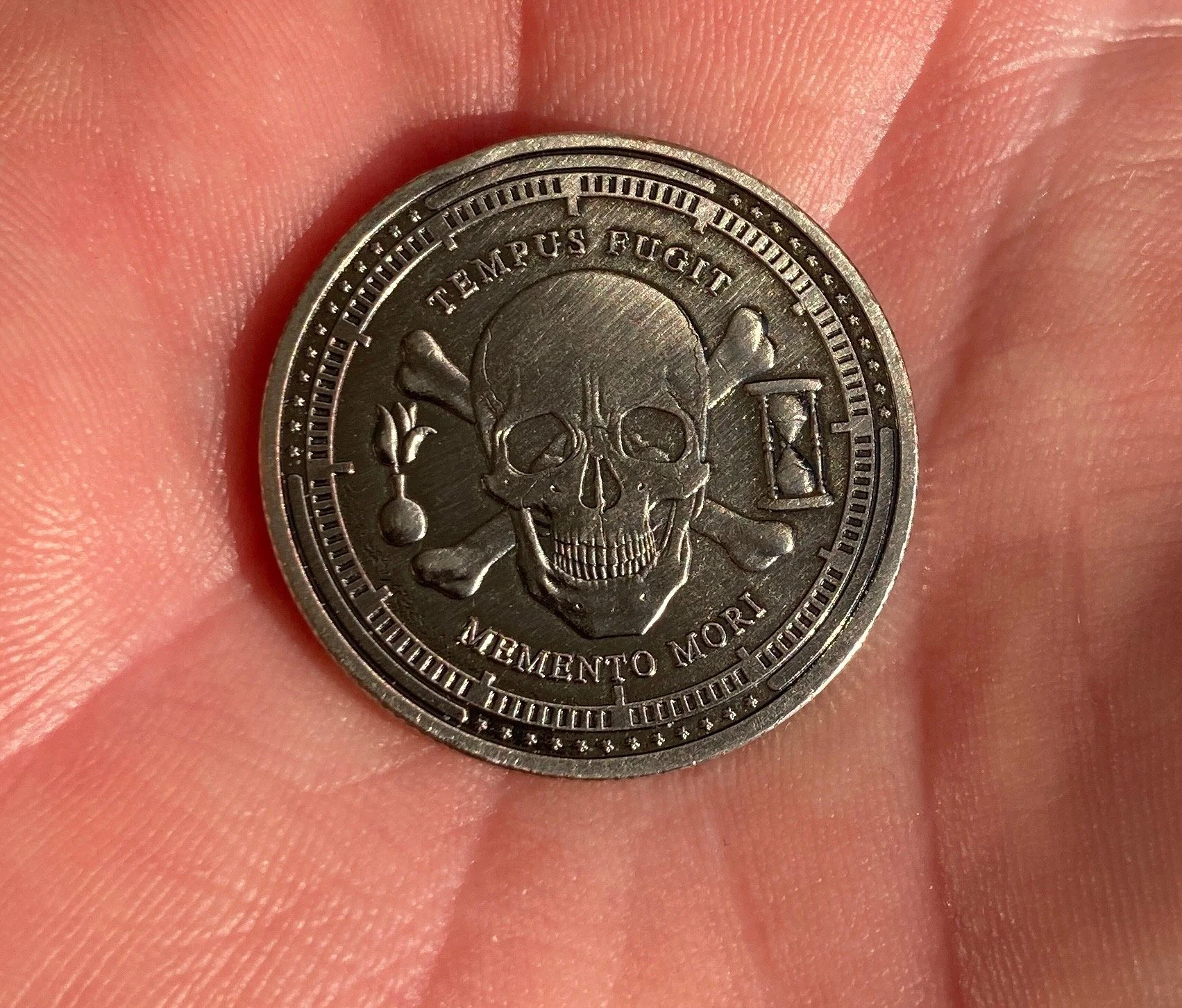Debbie Downer Wants You to Think About Death. You Should Listen to Her.
Warning: In this essay I talk about death, and not in an abstract way, but in a very concrete and it’s coming for all of us kind of way. Please do not read this if you think you might not be in a position emotionally for this topic.
---------
I turned 60 this last year, which is a milestone that causes a lot of people to reflect on life and death and particularly their own mortality.
And to those people who find themselves reaching 60 and thinking about, and maybe even freaking out about, their own deaths, I say: been there, done that, got the hospital gown.
For me, turning 60 was the, I don’t know, 30th anniversary?, of not being able to NOT think about my mortality. As I’ve discussed ad nauseum, I have OCD, which often manifests itself for me in hypochondria, fueled by obsessive thought spirals about death.
I got brass in pocket
Thanks to the miracles of pharmaceuticals, meditation and a psychiatrist who said 22 years ago, “It’s fixable,” I don’t get locked in those spirals nearly as often as I used to. Back in the day, all it took was a tweak in my neck or a slight headache to get me going, often leading to the moment when a far-too-patient ER doctor would have to explain that, yes, they could run a scan to rule out spinal meningitis, but it would cost $2000, and, well, you don’t have spinal meningitis.
Now days, my thoughts about death are healthier (in my opinion), in that: I don’t think I’m going to die; I know I’m going to die, and I try to live my life in a way that reflects that reality.
The great stand-up comedian and thinker Jay Mohr once talked on his podcast about how little time we are truly alive. If the hundreds of thousands of years that humans have walked the earth were represented by the length of a very long room, then the thinnest layer of paint on the wall of that room would equal the length of our lives.
Mohr’s point is akin to that of others. Crowfoot, chief of the Blackfoot nation, said to his people as he was dying, “A little while and I will be gone from among you, whither I cannot tell. From nowhere we come, into nowhere we go. What is life? It is a flash of firefly in the night. It is a breath of a buffalo in the wintertime. It is as the little shadow that runs across the grass and loses itself in the sunset.”
The Bible similarly cautions, in James 13-14: “Come now, you who say, ‘Today or tomorrow we will go to this or that city, spend a year there, carry on business, and make a profit.’ You do not even know what will happen tomorrow! What is your life? You are a mist that appears for a little while and then vanishes.”
Even economist John Maynard Keynes weights in: “In the long run we are all dead.” (Although I think he was talking about useful economic forecasting, not living a meaningful life. Still, he’s right…)
This perspective is useful to me when I’m thinking about what to do next, and more importantly, what to do right now – whether it comes to relationships, career, and my plans for the future. Think about choosing a career – we put so much pressure on ourselves to pick the “right one.” But based on what criteria? What our parents will think? What our friends will think? What the world will think?
In 50 years, there might be a dozen or maybe two dozen people alive who think about or even know what you did for a living. Hell, that might be the case in 20 years! Yes, you need to cover the table stakes: provide for your family, make sure you have health insurance, set aside money for potential expenses or a reasonably comfortable retirement. And human decency requires us to leave this world better, or at least not worse, than we found it. But in the long run, or even the medium run, and damn near the short run, it does not matter what you do for a living.
In the long run, none of these choices will matter. Therefore, in the short run, all of our choices matter.
No one in 50 years will care if you were “successful” in your career, which means you are free right now to choose a career you are happy in. A half century from now, no one will know whether you were kind to people, but the cashier in front of you knows, and is emotionally affected in this moment, how you treat her. In 2072, very few people if anyone will care if you were a loving partner, parent, child or sibling. But today, right now, your loved ones are intimately, fundamentally happier if you truly are there for them.
This isn’t an argument for nihilism. This is an argument for living fully and meaningfully today, for yourself and for your loved ones, because the future does not exist. Only right now exists.
This is hard to do, because it is scary to think about death, about not existing. It is scary to think about doing something out of the ordinary. And it is easy, way too easy, to just busy ourselves with the ordinary and the day-to-day as a way to distract ourselves from all this scary. So, to remind me of this point, I always carry around a coin inscribed with the phrase “memento mori.” It means, “Remember you must die.”
That sounds like a scary thing to have in your pocket but, as Oliver Burkeman points out in Four Thousand Weeks: Time Management for Mortals, if we can embrace it this concept is extraordinarily freeing. Have you always wanted to try something, but were afraid what people would think if you failed? Well go ahead and do it! On the scale of the great expanse of time, we are already dead. So let go of the fear of failure, because failure is meaningless.
So my New Year’s Resolution is to “remember I must die,” and act accordingly.

